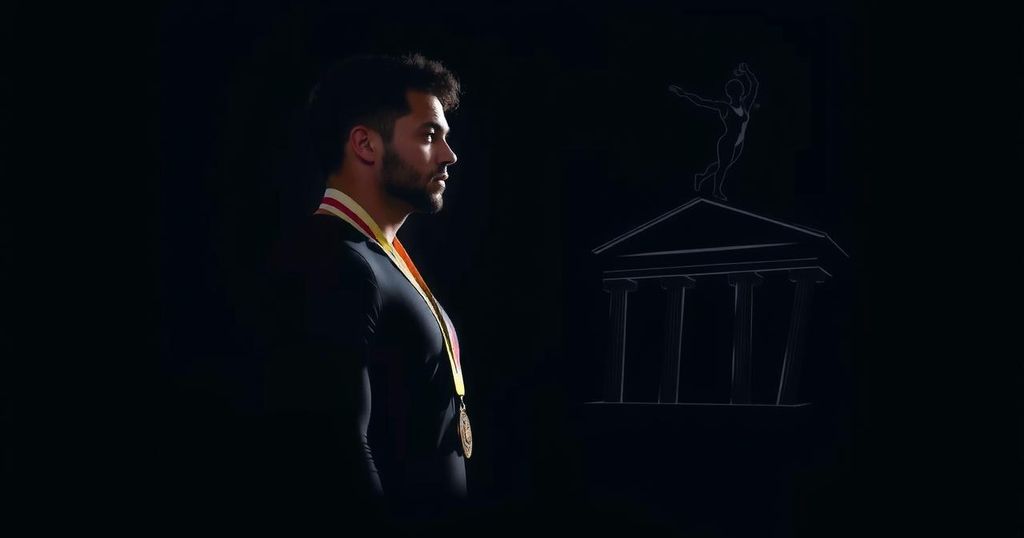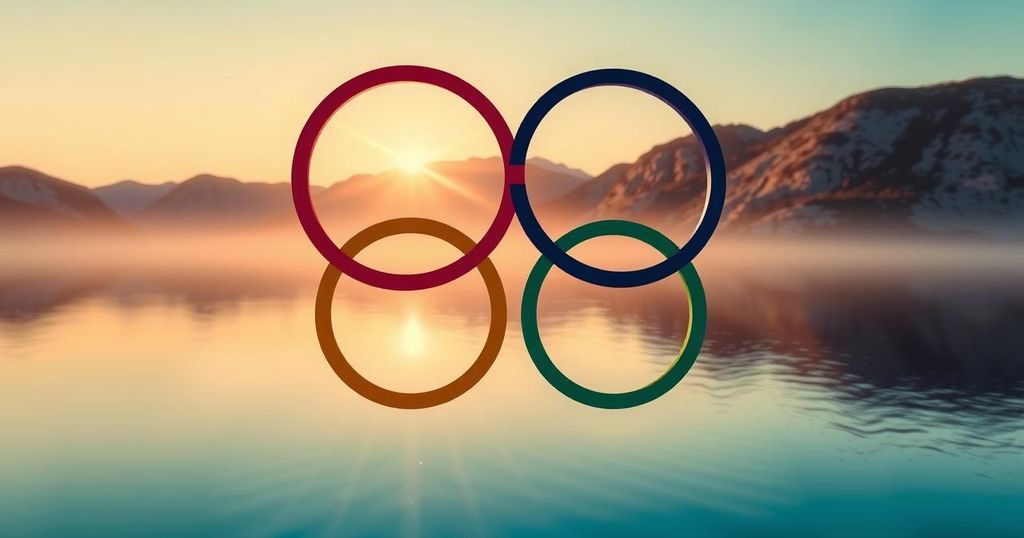Gymnast Jordan Chiles Appeals Swiss Supreme Court for Olympic Medal Revocation
Summary
Jordan Chiles, an American gymnast, has appealed to Switzerland’s highest court after losing her Olympic bronze medal due to an arbitration ruling that deemed her coach’s scoring inquiry filed too late. U.S. gymnastics officials provided evidence disputing this, but the Court of Arbitration for Sport upheld the decision. Chiles seeks a retrial to present her case, reflecting on the emotional toll and perceived injustice of being stripped of her medal.
Jordan Chiles, the American gymnast who was deprived of her Olympic bronze medal following a recent arbitration court ruling, has taken her case to Switzerland’s Federal Supreme Court. This incident unfolded dramatically after the gymnastics floor exercise final at the Summer Olympics in Paris, where history was made as three Black women shared the podium. However, the excitement abruptly faded when an arbitration court ruled that an inquiry submitted by Chiles’ coach—questioning the judges’ scoring—was filed mere seconds too late. Despite evidence presented by the U.S. gymnastics officials asserting that the inquiry was indeed submitted on time, the Court of Arbitration for Sport (CAS) stood firm in its decision. Consequently, Ana Barbosu from Romania received the bronze medal during a reallocation ceremony held in Bucharest last month. Chiles is now seeking a reconsideration of the case, arguing that the CAS proceeding’s fairness was compromised. Her legal advisor, Maurice M. Suh, emphasized that Chiles’s appeal raises a crucial legal issue: should an Olympic athlete, who adhered to all regulations, be unjustly stripped of her medal due to procedural flaws? He asserted that fairness must govern all aspects of the Olympics, including the arbitration process. The appeal filed with the Federal Supreme Court of Switzerland seeks to vacate the CAS ruling to allow for a retrial in which Chiles can present her defense supported by evidence, including video footage that purportedly confirms the timely submission of the scoring inquiry. Chiles’ initial score of 13.666 placed her fifth, narrowly missing the podium, but following the inquiry, the score was adjusted to 13.766. Following a subsequent appeal from the Romanian gymnastics federation, the CAS determined the inquiry was filed four seconds too late, reverting Chiles’ score back to its original form, thus denying her the bronze medal. Expressing her dismay over the situation, Chiles described the experience as beyond heartbreaking, pointing out the emotional toll it has taken on her. She has been exposed to significant online abuse due to the controversy surrounding her medal. In her own words, she expressed her disappointment saying, “I followed the rules. My coach followed the rules. We did everything totally, completely right. I feel like they just took that all away.” In conjunction with her appeal, Chiles has requested that Hamid Gharavi, the presiding arbitrator during the scrutiny of her case, be disqualified from future hearings due to his concurrent representation of Romania in other matters. Gharavi had disclosed this conflict of interest, and it was stated that no objections were raised regarding his involvement. Chiles’ law firm, Gibson Dunn, condemned the entire arbitration process as fundamentally unjust, culminating in what they consider an egregious decision.
The case of Jordan Chiles highlights significant issues surrounding fairness and integrity in Olympic scoring and arbitration processes. In August, during the Summer Olympics in Paris, Chiles initially secured what would have been a historic bronze medal, marking the first instance where three Black women shared a podium in Olympic gymnastics. However, a last-minute inquiry regarding her scoring—triggered by her coach’s concerns over a potential misjudgment—was ultimately deemed ineligible due to a timing error. The compulsory nature of adhering to rapid procedural rules during such high-stakes competitions adds layers of complexity and potential unfairness to the outcomes of such inquiries. Legal implications from this case may resonate beyond athletics, impacting future arbitration proceedings and protocols within Olympic rule enforcement.
In conclusion, Jordan Chiles’ appeal to the Federal Supreme Court of Switzerland represents a critical examination of the arbitration process that resulted in the revocation of her Olympic bronze medal. It encapsulates broader themes of fairness and accountability within competitive sports. The case not only underscores the emotional and psychological ramifications for athletes but also raises vital questions regarding the integrity of adjudicative processes in high-stakes athletic events. Chiles’ pursuit of justice serves as a pertinent reminder that adherence to fairness is essential in all areas of competitive sport, particularly when it impacts an athlete’s hard-earned achievements.
Original Source: www.wfdd.org








Post Comment